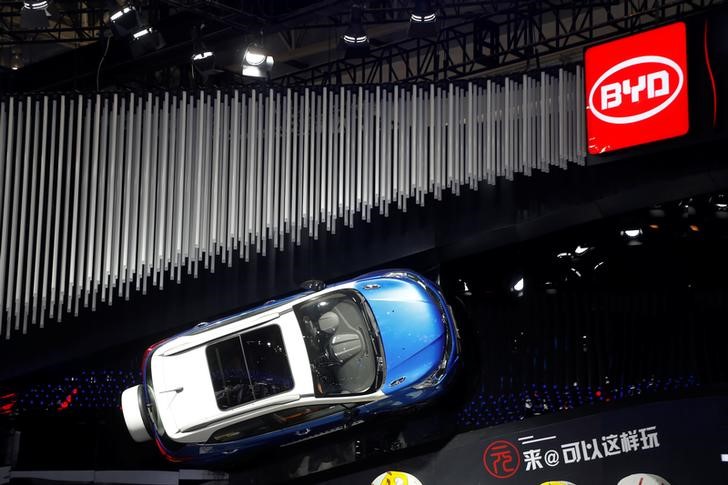Investing.com-- Hong Kong shares of major Chinese electric vehicle makers rose sharply on Thursday after clocking strong delivery figures for April, with Nio Inc (NYSE:NIO) leading gains as deliveries more than doubled from last year.
Nio Inc’s Hong Kong shares (HK:9866) were the best performers among their peers, up nearly 23% at HK$43.80.
The EV maker said it delivered 15,620 EVs in April- up nearly 135% from April 2023 and up over 30% from the 11,866 EVs in March 2024.
After Nio, Xpeng Inc (NYSE:XPEV) was the best performer among Chinese EV stocks for the day. Hong Kong shares of Xpeng (HK:9868) rose 8.7% to HK$34.25, after it delivered 9,393 EVs during April, a 33% jump from the prior year.
Other local EV makers also clocked strong deliveries in April, as a price war instigated by Tesla Inc (NASDAQ:TSLA) heated up.
BYD (SZ:002594)'s Hong Kong shares (HK:1211) rose 4.5% after it said it sold 313,245 vehicles in April, up nearly 50% from a year earlier. Overseas deliveries also hit record highs, as the company made stronger forays into markets such as India and Europe.
BYD had overtaken Tesla as the world’s best-selling EV maker in the December quarter, providing the U.S. tech giant with stiff competition in the Chinese markets, which has become a hotly-contested space for EV makers. But while BYD outsold Tesla in China, the world’s most valuable EV maker reclaimed the top spot in terms of global sales through the first quarter of 2024.
Other Hong Kong-listed Chinese EV stocks also advanced on Thursday, amid positive sales figures for April. Li Auto Inc (HK:2015) (NASDAQ:LI) added 2.9%, while tech giant Xiaomi (OTC:XIACF) Corp (HK:1810), which saw surprisingly strong demand for its recently-launched SU7, rose 1.7%.
Gains in EV stocks saw Hong Kong’s Hang Seng index add 2%, outpacing its regional peers.
While global EV sales trended lower over the past year, China remained a bright spot amid sustained consumer demand and a slew of government subsidies. This trend sparked cutthroat competition among local players, while also keeping forays by any foreign automakers limited.
Increased competition in China saw Tesla nursing a 8.5% decline in first-quarter deliveries- its first drop in deliveries in nearly four years.
